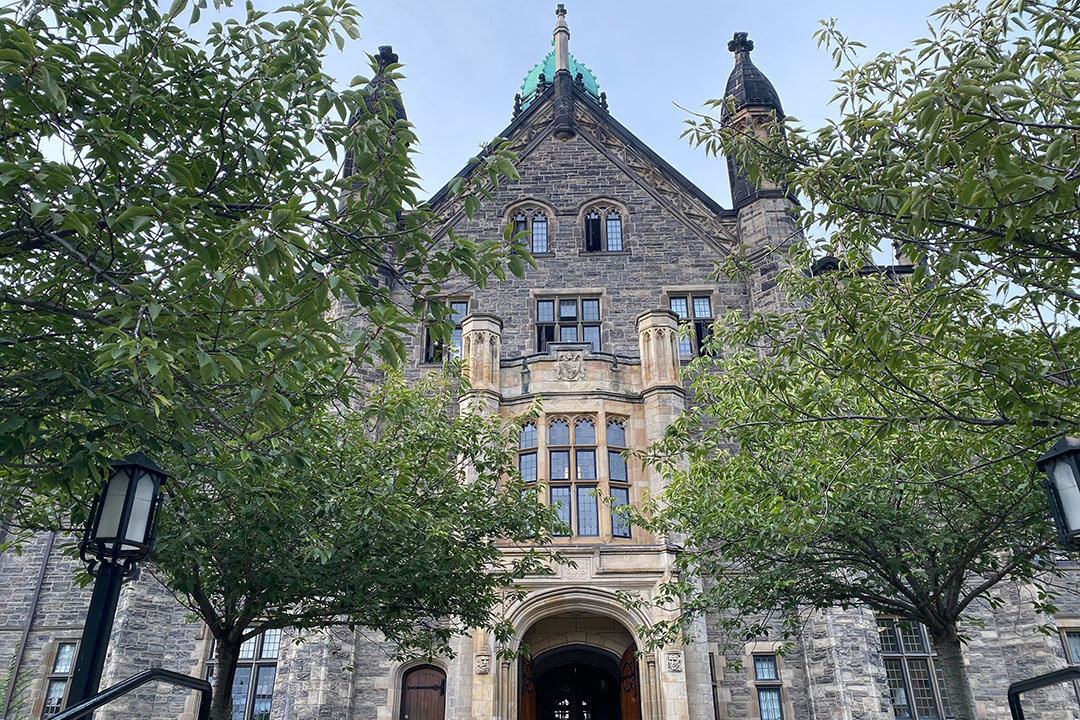On September 11, Trinity College’s office of the provost announced that the college would fully divest its endowment from fossil fuel companies by 2030 or sooner.
The announcement comes a few months after U of T’s two other federated colleges committed to divest their endowments from fossil fuel companies, with Victoria University making the pledge in April and the University of St. Michael’s College doing so in June. In October 2021, U of T committed to divest its endowment — which amounted to $4 billion at the time — from fossil fuel companies by 2030, a decision that did not include the three federated colleges.
In statements online, student activist group Climate Justice UofT called for the college to divest by 2025. It criticized Trinity College for both a lack of transparency and for not committing to fossil fuel divestment sooner.
A changing response to the climate crisis
Trinity College’s investments are overseen by the Trinity College Board of Trustees, which is made up of 28 members elected from various stakeholders in the college. According to the college’s 2021–2022 audited financial statement, Trinity College’s endowments amounted to $83,782,000 in 2022.
In a statement posted on the Trinity College website, the office of Trinity College Provost Mayo Moran wrote that the school does not currently hold any direct investments in fossil fuel companies but invests a “small percentage” of its endowment in externally managed funds with stakes in fossil fuel companies.
The statement added that the board arrived at the decision to divest as a part of an internal review of the college’s endowment “in support of the College’s commitment to sustainability,” and that Trinity College has been “specifically investing in funds that focus on environmental sectors and transition to a clean-energy future” since 2018.
“Trinity has always been a leader on issues of sustainability and the environment,” said Moran, as quoted in the statement. “We are confident we can do this within the time frame and in a manner that maintains the financial strength of the endowment funds.”
In the statement, Trinity College also highlighted multiple other sustainability initiatives at the college, including the Lawson Centre for Sustainability — which the college plans to equip with a rooftop farm and community kitchen after it opens in 2025 — and the Butterfield Environment & Sustainability stream — a segment of the Margaret MacMillan Trinity One Program that aims to educate students on complex issues related to human beings and the planet.
Student reaction
In posts online, Climate Justice UofT lauded Trinity College’s decision but indicated that the college should take additional action. “This is a student win & a step in the right direction, but it is not good enough,” the group posted on Twitter on September 12.
Student activists on campus have long called for the federated colleges to divest from fossil fuels. Climate Justice UofT’s 18-day occupation of Victoria College’s Old Vic building, which started on March 27, immediately preceded Victoria University’s divestment announcement, and the organization says that its behind-the-scenes advocacy also contributed to the University of St. Michael’s College’s decision to divest.
In an email to The Varsity, Amy Mann, an organizer at Climate Justice UofT, wrote that the organization has been advocating for federated college divestment for the last year. Other student groups have called for divestment for at least five years, wrote Mann. Climate Justice UofT organizers Mann, Boomba Nishikawa, and Mathis Cleuziou wrote in a joint statement provided to The Varsity that Trinity College has previously attempted to give the organization a $500 fine for posting “Divest Trin” stickers and had asked if it planned to hold a building occupation at Trinity College.
In its Twitter post, Climate Justice UofT called on Trinity College to divest by 2025 instead of 2030, which the group says is more in line with climate predictions from the Intergovernmental Panel on Climate Change (IPCC). According to the IPCC, global greenhouse gas emissions must peak before 2025 to keep average global temperatures from increasing more than 1.5 degrees Celsius — after which point scientists predict that the effects of the climate crisis will dramatically worsen.
Organizers demanded in their statement that Trinity College divest its funds from companies that build fossil fuel infrastructure. They also criticized the college’s lack of financial transparency, noting that Trinity College has not revealed the size of its fossil fuel investments or created accountability mechanisms to ensure it divests in time.
“Trinity College has not shown leadership. They are months behind Victoria University and Saint Michael’s College and two years behind U of T’s divestment announcement – all of which are already too late,” reads the statement.
Trinity College has not responded to The Varsity’s request for comment.
With files from Jessie Schwalb.



No comments to display.